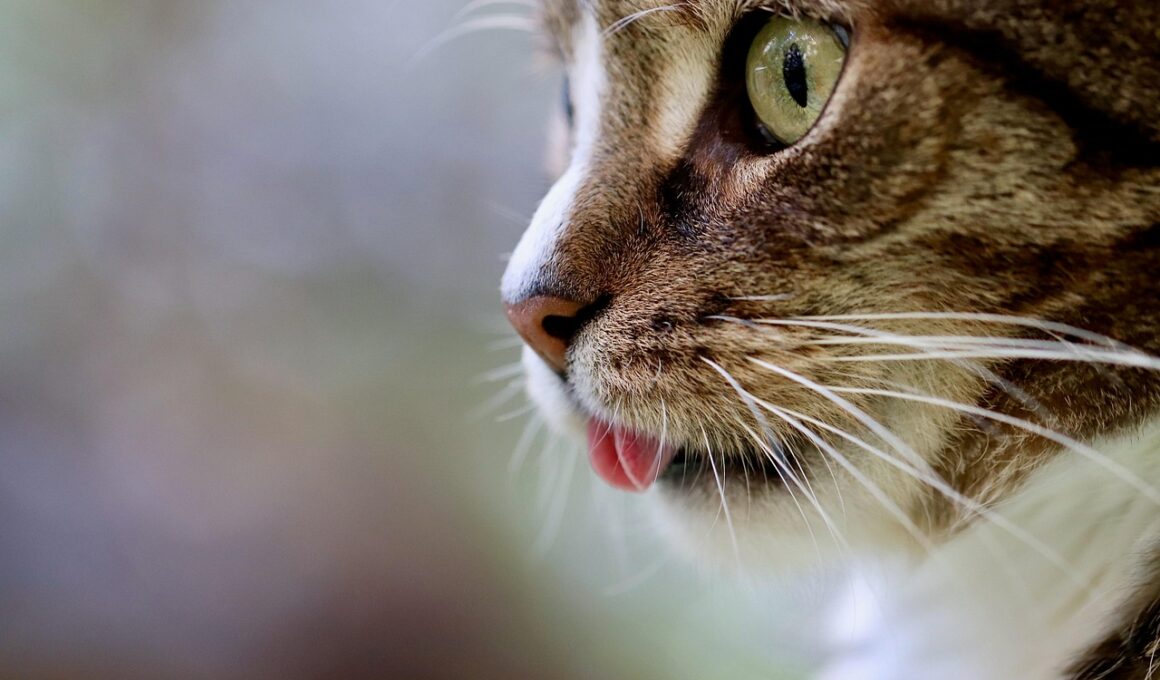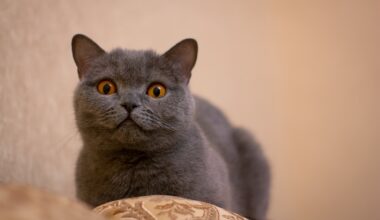The Effect of Aging on Digestive Enzymes and Dietary Requirements in Cats
As cats age, their nutritional needs evolve, particularly concerning their digestive enzymes. Older cats often experience a decrease in these enzymes, leading to difficulties in digesting food efficiently. This reduction can result in a variety of issues, including malnutrition, weight loss, and gastrointestinal disorders. Therefore, it is crucial to understand how aging impacts digestive health. For aging felines, the types of food provided should cater to their declining digestive capabilities. This includes selecting diets that are easier to digest, rich in protein, and of high-quality ingredients. By improving their diet, older cats can maintain better overall health and comfort. Specialized senior cat food formulations are available that contain lower levels of fat, more fiber, and easily digestible protein sources. These formulations help meet the unique needs of senior cats while providing essential nutrients. However, consulting a veterinarian is highly recommended to tailor dietary choices effectively and safely based on the individual pet’s health status and needs. Proper nutrition can significantly enhance a senior cat’s quality of life by minimizing health complications associated with aging.
As cats age, their bodies undergo changes that affect their metabolism. This shift often leads to a decreased appetite and energy levels as well. Consequently, many cat owners observe noticeable weight loss in their feline companions. To combat this, the diet should include more caloric density and nutrient-rich foods while being mindful of their digestibility. It is important that older cats receive adequate vitamins and minerals in their diet. Antioxidants, such as vitamins E and C, play a crucial role in combating oxidative stress that accumulates with age. Furthermore, an increased percentage of moisture in their meals helps maintain hydration, which is essential for optimal organ function as a cat grows older. Cats are obligate carnivores, and their diets should primarily comprise animal proteins making them suitable for geriatric felines. The inclusion of Omega-3 fatty acids from fish oil may also help reduce inflammation and support joint health. When transitioning older cats to new diets, it’s critical to do so gradually to prevent gastric upset. Owners should always ensure the new diet aligns with their cat’s health status and supports overall well-being.
Understanding Digestive Enzyme Decrease
With age, the production of digestive enzymes, such as proteases, lipases, and amylases, declines significantly. The decrease in these enzymes reduces a cat’s ability to break down and absorb nutrients effectively. This degradation is often exacerbated by potential dental issues, making chewing difficult and affecting how they can eat. Insufficiently digested food can contribute to problems like diarrhea or malnutrition. Recognizing these signs early on is crucial so that appropriate dietary adjustments can be made. Providing wet food can be beneficial, as it is easier to manage for cats with dental problems. Additionally, incorporating high-quality protein sources ensures that older cats get the nutrients they need without excessive effort in digestion. It is also wise to consider the various life stages of a cat when selecting food; specific formulations are designed to cater to age-related changes. Food enriched with probiotics can help maintain gut health and improve digestion. Regular vet consultations can provide insights and recommendations for best feeding practices tailored to aging cats, ensuring they receive adequate nutrition throughout their golden years.
When examining dietary needs for aging cats, it’s essential to consider their hydration, alongside the food consumed. As cats grow older, their thirst drive can diminish, making it necessary to provide moisture-rich foods. Increasing water intake is also vital, as dehydration can lead to kidney issues, which are common in senior cats. Offering a combination of wet and dry food can help maintain their hydration levels. Additionally, ensuring the availability of fresh water at all times is crucial for encouraging proper fluid intake. Furthermore, owners can explore the option of using water fountains to stimulate their elderly cats to drink more often. Another aspect to take into account is the total caloric intake; older cats may require fewer calories, but their nutrient requirements remain high. Identifying the right balance in meals can be key for weight management and health maintenance. Regularly reviewing the cat’s body condition score ensures that their diet supports a healthy weight. Regular adjustments based on their weight fluctuations can assist in managing their overall health effectively. Nutritional adjustments during aging ensure a better quality of life and less strain on their health.
Food Types for Older Cats
Older cats benefit significantly from food types specifically formulated to address their unique needs. These diets should feature increased protein levels, which help compensate for the decline in muscle mass that occurs with age. Furthermore, the inclusion of palatable flavors and enhanced aromas can encourage older cats to eat, especially when their appetite may wane. Senior cat foods should be easily digestible and include high-quality ingredients—this means avoiding fillers and artificial additives, which can further complicate digestion. Flavor enhancers can be particularly useful, enticing elderly cats to consume more. Furthermore, including specific supplements to support joint health can ensure mobility remains at functional levels well into their later years. Nutritional supplements such as glucosamine and chondroitin may help alleviate joint pain, while fatty acids can also support cardiovascular health. Additionally, including functional ingredients, like prebiotics, can promote gut health. Working closely with a veterinarian can help ensure that aging felines receive adequate diets that contain all essential nutrients, managing health concerns while optimizing their quality of life and dietary intake.
As you decide on a dietary plan for your aging cat, implementing gradual changes is crucial. Sudden shifts in diet can lead to gastrointestinal stress, particularly in older individuals with sensitive digestive systems. Start by mixing small amounts of the new food with the current diet, gradually increasing the proportion of the new food over time. This transition allows the cat’s digestive system to adjust without causing discomfort. Monitoring the cat’s reaction to these dietary changes is essential; signs of distress, such as vomiting or diarrhea, indicate a potential issue that may require a slower transition or a reconsideration of the food choice. Notably, ensuring that the preferred textures and flavors of the food are maintained can ease the transition. By prioritizing small adjustments, you can significantly enhance your cat’s dietary acceptance, promoting overall health and vitality. Always be on the lookout for any changes in weight or energy levels throughout this process, which can signal the need for modifications in their diet. Ultimately, providing the right nutritional options will ensure a happy and healthy life for your beloved aging companion.
Conclusion: Maintaining Nutritional Quality
In conclusion, addressing the dietary requirements of aging cats is vital for their longevity and health. With their declining digestive enzyme production and changing metabolism, it is essential that owners remain vigilant in providing high-quality, easily digestible foods. Regular monitoring of body weight and overall health through veterinary check-ups can help ensure dietary plans stay effective. Additionally, being aware of hydration and nutrition balance is paramount in fostering an optimal environment for older cats. Foods rich in protein, moisture density, antioxidants, and functional ingredients can significantly improve the quality of life for senior felines. Owners should recognize the importance of a tailored approach, integrating gradual dietary changes and appropriate supplements to meet the requirements of their aging companions. Engaging in open communication with veterinarians will guide cat owners toward corrective measures for dietary adjustments as necessary. Ultimately, the key to a fulfilling old age for cats lies in proper nutrition, monitoring, and continuous adjustments. Committing to these practices can lead to vibrant health, ensuring that our beloved feline friends can enjoy their golden years to the fullest.


